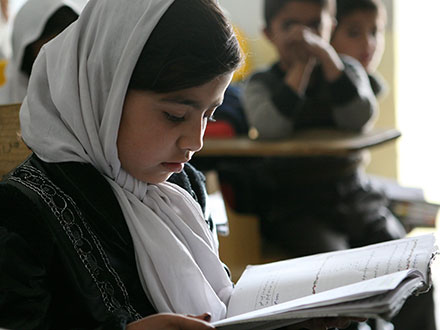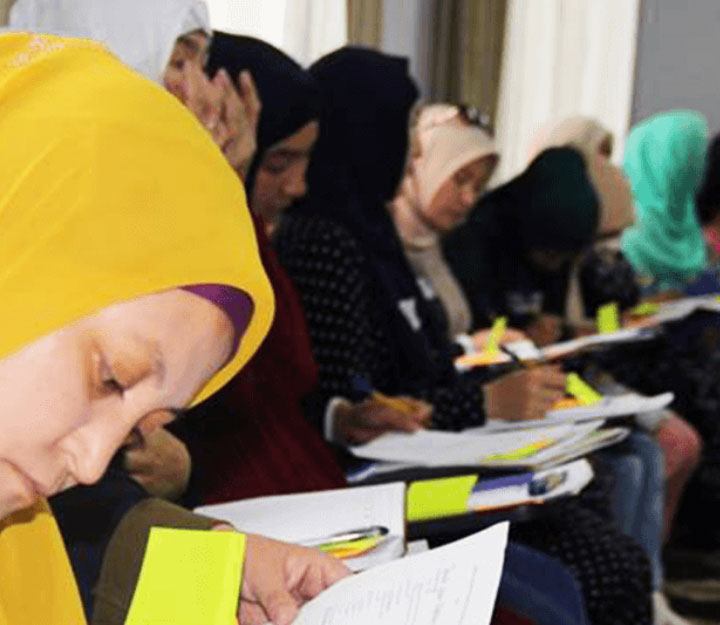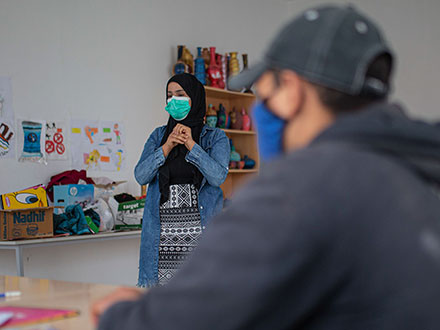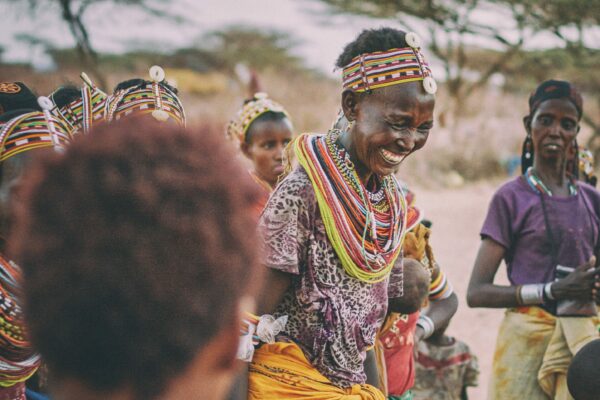Community policing
Rebuilding relationships between communities and the police is critical to prevent and counter violent extremism.
Community policing allows the police and communities to work closely together in creative ways to solve radicalization. Community policing adds a proactive element to the police’s traditional reactive role, allowing police to work with people on developing solutions for community concerns to encourage mutual accountability and respect. There is also evidence that actual or perceived overly coercive policing tactics can serve as a critical driver of violent extremism, and community policing can help reduce such tensions.
The transition to more community-based approaches is vital as it allows the police and the community to work closely together in creative ways to solve problems including radicalization. Community policing adds a vital, proactive element to the traditional reactive role of the police, allowing police to work with people on developing immediate as well as long-term solutions for community concerns in ways that encourage mutual accountability and respect.
In addition, a move to community policing can reduce perceptions where the police are seen as discriminatory, corrupt and/or heavy-handed individuals, people, including from marginalized groups. There is evidence that actual or perceived overly-coercive policing tactics can serve as a key driver of violent extremism.
The community policing model allows for a reliable and mutual flow of information between the public and the police, as well as effective security partnerships with community leaders and local organizations. By working within the police academy infrastructure, Hedayah promotes a community policing ethos throughout the entirety of the policing institution. This cultural shift endeavors to raise awareness amongst officers on the benefits of a community-oriented approach. It is also important to acknowledge the detrimental effect that unconscious bias or unintentionally harsh tactical responses may have in creating social grievances, which may be then exploited by violent extremist recruiters in their own propaganda.
The program promotes a set of additional knowledge and skills-based sessions, as well as good practice, to be embedded in the national policing curriculum. In addition, the curriculum also includes specific sessions simultaneously targeting community members and police officers, offering the concrete opportunity to foster a dialogue in practice. By engaging at the existing training level, it aims to foster a community orientation throughout the entirety of the policing service; starting at the initial training for new recruits and reinforced through ongoing training for in-service officers.
I gained lots of experience during the training, which I will share across my community to facilitate good communication and build trust and confidence between the police and the public. I have already scheduled a community engagement with the management of the National Institute of Police Studies to relay the lessons I’ve learnt here and advocate better partnerships and coordination with the police in my community.
Police Officer, NigeriaIn Nigeria
The Nigeria Police Force is in a unique position to identify challenges, issues and concerns that emerge by gathering real-time data. The information gathered would assist law enforcement leaders in jointly developing and implementing policies and strategies to prevent radicalization leading to violent extremism.
It is paramount to put in place additional efforts in bridging the gaps between communities and police forces in the country. In 2020 Nigeria established Community Policing Committees at all levels of the police command chain. Such committees comprise representatives from communities, such as traders’ associations, CSOs, traditional leaders, and police representatives. The Policing Committees are in charge of :
- Assisting the police in the identification, vetting, and selection process of Community Policing Officers;
- Helping identify security concerns in communities and work towards appropriate solutions;
- Advising on general security issues affecting communities; and
- Advising on police-community partnerships with the aim to enhance trust, safety and security.
In 2021, Hedayah supported community policing in Nigeria by providing training to the Nigeria Police Force and representatives from communities of the Federal Capital Territory of Abuja. The training program, which emphasized the importance of police-community relationships and their benefits on addressing concerns across communities, showed a statistically significant increase in the average knowledge score from 2.76 out of 6 (46%) during the pre-training survey to 4.04 (67%) after the training.
Knowledge gained on violent extremism, factors behind radicalization and practical skills on community engagement formed locally-run awareness-raising sessions at Wuye police station.
In Tanzania
Tanzania is relatively stable and peaceful, but given its proximity to Kenya and Somalia, where terrorist group al-Shabaab, have expanded their presence, the spread of violent extremism in Tanzania is an issue of concern. Community policing is a critical measure to prevent and counter violent extremism. Violent extremist and terrorist groups, through radical narratives, try to break the trust between communities and the police to push people to target state-led institutions through anti-state propaganda.
In many terrorist narratives, threats and attacks are made on police officers, and extremist groups can also exploit untrained police officers for recruitment and radicalization. This is why rebuilding relationships between communities and the police is so important.
Community policing also allows the police and communities to work closely together in creative ways to solve radicalization. Community policing adds a proactive element to the police’s traditional reactive role, allowing police to work with people on developing solutions for community concerns to encourage mutual accountability and respect. There is also evidence that actual or perceived overly coercive policing tactics can serve as a critical driver of violent extremism, and community policing can help reduce such tensions.
In Tanzania, Hedayah trained 60 police academy trainers and headquarters staff to revise and augment the existing police academy training with community policing principles to ensure all recruits are better prepared to counter and prevent violent extremism. The training helped create a community policing model that allows for a reliable and mutual flow of information between the public and the police, based on a community policing ethos. Hedayah also assisted police as trainers of this ethos to ensure sustainability and a culture shift within the academy.
In Kosovo
Evidence indicates that challenging or non-collaborative relationships between law enforcement agencies and the public may have the potential to fuel community grievances exploited by violent extremist recruiters in their propaganda. Effective Community Oriented Policing practices mainstreamed through police and law enforcement academies have the ability to mitigate security concerns and promote social cohesion.
In 2021, Hedayah trained members of the Kosovo Police and the Kosovo Academy for Public Safety on skills and knowledge to further integrate a community policing ethos for countering violent extremism and to enhance the Government’s existing curriculum on community policing.
The analysis of the pre and post-training surveys highlighted a significant increase in knowledge from 7.88 out of 15 (53%) during the pre-training survey to 9.71 (65%) after the training.














